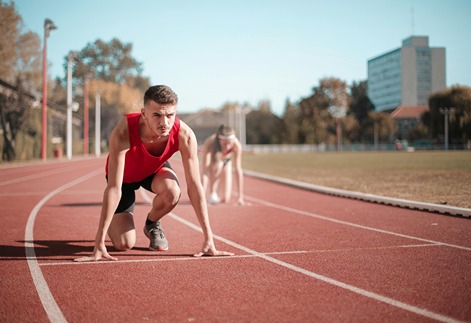Photo by Andrea Piacquadio /pexels
Fueling your body with the right nutrients is essential for athletic performance. Whether you’re a professional athlete or a fitness enthusiast, the right nutrition can make a significant difference in your energy levels, endurance, and recovery. Below is some of the best nutrition advice for athletes to help you reach your full potential.
Prioritize Protein for Muscle Recovery
Protein plays a vital role in repairing and building muscle after intense training sessions. Athletes should consume protein-rich foods such as chicken, fish, eggs, beans, and tofu. If you’re training heavily, consider a protein supplement like whey or plant-based powders to meet your needs. Aim for about 1.2 to 2.0 grams of protein per kilogram of body weight daily.
Stay Hydrated for Peak Performance
Hydration is crucial for maintaining energy and focus during training and competition. Dehydration can lead to reduced endurance, strength, and mental clarity. Athletes should aim to drink water regularly throughout the day, not just during workouts. For intense exercise lasting more than an hour, consider a sports drink to replace lost electrolytes like sodium and potassium.
Carbohydrates Are Your Body’s Main Fuel
Carbohydrates are the primary energy source for athletes, especially during high-intensity training. Complex carbs such as whole grains, fruits, vegetables, and legumes provide sustained energy and should be part of every meal. Timing is important—consume carbs before and after workouts to fuel performance and aid recovery.
Include Healthy Fats for Endurance
While carbs fuel short bursts of energy, fats help sustain long-term endurance. Incorporating healthy fats like avocado, nuts, seeds, and olive oil into your diet can provide lasting energy, especially for endurance athletes. Omega-3 fatty acids from sources like salmon and flaxseeds can also reduce inflammation and speed up recovery.
Don’t Skip Breakfast
Breakfast sets the tone for the rest of your day. For athletes, skipping breakfast can result in low energy levels and poor performance. Start your day with a nutrient-packed meal that includes a mix of protein, carbs, and healthy fats—think oatmeal with fruit and nuts, or scrambled eggs with whole-grain toast.
Plan Your Pre-Workout Nutrition
What you eat before a workout can significantly impact your performance. A balanced pre-workout meal or snack should include easily digestible carbohydrates and a small amount of protein. Foods like bananas, whole-grain toast with peanut butter, or a smoothie are great choices to eat 1-2 hours before exercising.
Focus on Post-Workout Recovery Meals
Recovery is as important as the workout itself. A post-workout meal should be consumed within 30 minutes to an hour after training and should include a combination of protein and carbs. This helps replenish glycogen stores and repair muscle tissue. A smoothie with protein powder, a turkey sandwich, or yogurt with granola are excellent recovery meals.
Pay Attention to Micronutrients
Vitamins and minerals are often overlooked but are essential for optimal performance. Calcium, magnesium, and vitamin D are critical for bone health, while iron supports oxygen delivery to muscles. Athletes should eat a wide variety of colorful fruits, vegetables, nuts, and seeds to meet their micronutrient needs.
Listen to Your Body
Every athlete’s body is different, so it’s important to listen to your individual needs. Some athletes may need more carbs, while others perform better with more fat. Pay attention to how your body feels during and after training and adjust your nutrition plan accordingly.
Conclusion
The best nutrition advice for athletes centers on a balanced diet rich in protein, healthy fats, carbohydrates, and micronutrients. Proper hydration and meal timing also play key roles in enhancing performance and recovery. By focusing on these key elements, athletes can fuel their bodies for success.
Similar FAQ
What is the best diet for athletes
A balanced diet rich in protein, carbohydrates, healthy fats, and micronutrients supports optimal athletic performance.
How much protein should athletes consume
Athletes should aim for 1.2 to 2.0 grams of protein per kilogram of body weight daily to support muscle recovery and growth.
How important is hydration for athletes
Staying hydrated is crucial for maintaining energy, focus, and overall performance during training and competitions.
What should athletes eat before a workout
A pre-workout meal should include easily digestible carbs and a small amount of protein, such as fruit, toast, or a smoothie.
Why are healthy fats important for athletes
Healthy fats provide long-lasting energy and help reduce inflammation, which supports better endurance and faster recovery.

